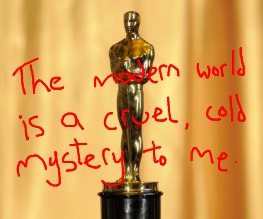Crude

We’re no strangers to the documentary that makes you feel bad for the little guy. Since the genre first became commercial enough for cinema release with the advent of Michael Moore’s Bowling for Columbine and Morgan Spurlock’s Super-Size Me, we’ve had our heartstrings pulled pretty much every which way, to the point where… well, not to be insensitive, but the concept’s getting kind of old. So it’s nice to see that as cinema documentaries really come into their own, filmmakers are coming up with a more unique and balanced take than just blatantly bashing the fat cats at the health company, gun lobby or what-have-you. Joe Berlinger’s new release Crude, which centres around a class action by a group of Ecuadorian tribes against American oil giant Chevron for poisoning their patch of the Amazon rainforest, does just that.
The film starts out looking like your typical David vs Goliath battle – it introduces us to the 16-year ongoing battle of the Ecuadorians to bring Chevron to justice, outlining the increased rates of cancer, visibly damaged natural surroundings and contaminated drinking water that their community now deals with on a daily basis as a result of the pollution. But there’s more to this story than a big bad oil company destroying everything for everyone, which is why the case has been going on so long. Chevron, then known as Texaco, sold their interests on to the Ecuadorian government in the ’90s, who conducted an alleged ‘cleanup’ of the area and promptly indemnified themselves against any sort of legal action. It seems just as likely that the tribes’ own government sold them out, which will prevent them from getting anywhere in court any time soon.
The refreshing thing about Berlinger’s film is that once it’s done with the typical shocking images of sick kids and black water, it gives the other side plenty of airtime to state their case, while also providing insightful commentary on the nature of the environmentalist movement. Although Chevron’s more businesslike argument is obviously not given as much sympathy, and can’t possibly be as compelling, as the Ecuadorians’ tale of pain and destruction, they still raise some interesting points. The American class-action lawyers representing the prosecution side obviously aren’t doing it expecting nothing in return, and they unashamedly manipulate and market the case to generate public sympathy. In this way, the environmentalist movement is just as much a business as the oil industry. And just as commercialised, as Berlinger shows when a Vanity Fair article on the case attracts the attention of the bandwagon-jumping Trudie Styler and Sting.
Crude raises valid questions about who exactly is right and wrong in a case like this. It’s an intriguing look at the grey areas, as opposed to the blacks and whites of your Moores and Spurlocks. If only Berlinger had chosen to devote his entire film to this theme, rather than just a significant part of it, the material might have stood out even further.





Recent Comments